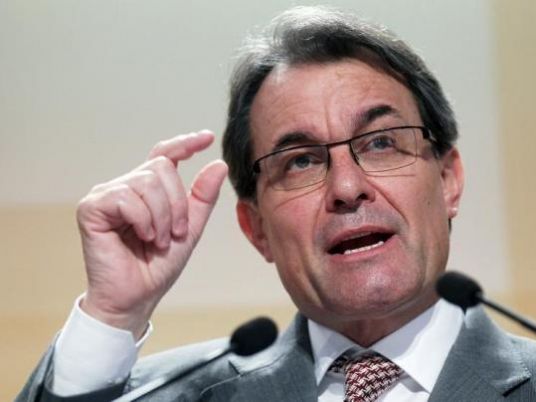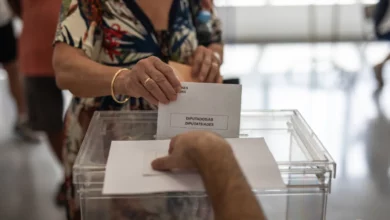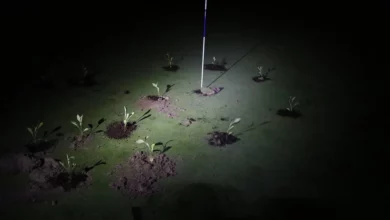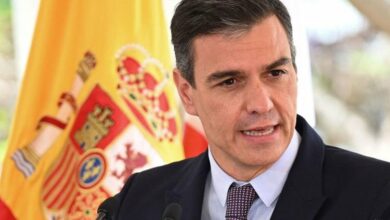
Catalan political parties sharpened their knives on Thursday one month ahead of a key regional election which separatists want to use as a plebiscite on secession from Spain.
The September 27 polls are crucial for the pro-independence parties who have been losing support since Catalonia held a symbolic referendum on independence in November 2014.
Surveys show that for the first time since 2011, backing for Catalonia remaining a part of Spain surpasses support for independence.
In July, parties seeking independence for Catalonia set aside their ideological differences and formed a grand coalition for the elections.
Called "Junts pel Si" ("Together for Yes") it groups the ruling conservative CDC party, the left-wing ERC party and civil society organisations which have staged massive pro-independence demonstrations in recent years.
The coalition's list of candidates, headed by Raul Romeva, a former communist-green member of the European Parliament, includes singers, economists, a 95-year-old priest, Bayern Munich coach Pep Guardiola, and other leading public figures.
"We are coming together because we need to build a new state," Romeva said on Wednesday.
If they win the elections, their goal is to push through an 18-month roadmap for secession for the region of some 7.5 million people which accounts for a fifth of Spain's economic output and includes its second-largest city, Barcelona.
– Separatists upbeat –
For Catalan president Artur Mas, victory is about winning a majority in Catalonia's 135-seat regional parliament, not obtaining over 50 percent of the vote.
The pro-independence platform is slated to win 36 percent, which would give it 57 seats in the assembly — leaving it well short of a 68-seat majority, according NC Report poll published Thursday in the conservative La Razon daily.
But the separatists say their own internal polls show they are close to winning a majority.
If they manage to win a majority, it could spark the biggest crisis between the region and Madrid since Spain returned to democracy following the 1975 death of long-time dictator General Francisco Franco.
Unlike Scotland's referendum on independence, which was recognised by London and resulted in a vote to stay in the United Kingdom, Spain's conservative Prime Minister Mariano Rajoy has refused to allow a plebiscite in Catalonia on the grounds it would be against the constitution.
– Voter turnout key –
While anti-independence parties refuse to accept the regional election as a plebiscite on independence, they are marshaling their forces to ensure a high turnout among supporters who are less politically active than the Catalan nationalists.
At the last minute, Rajoy's Popular Party, which is trailing in the polls in Catalonia, swapped its top candidate in favour of Xavier Garcia-Albiol, a controversial former mayor of Badalona, the region's third-largest city, whose comments about immigrants have been denounced as "xenophobic" by civil society groups.
"The stakes are very high," said Garcia-Albiol, who is predicted to win 12 seats.
Rajoy plans to attend several campaign events as does the leader of the main opposition Socialist Party, which proposes a constitutional change transforming Spain into a federal state as a way to resolve the Catalonia-Madrid dispute.
But the main threat to the separatists does not come from traditional parties but from two new forces: the far-left anti-austerity party Podemos and the centre-right anti-nationalist party Ciudadanos.
According to the Razon poll, Ciudadanos, which is headed by 35-year-old Barcelona lawyer Albert Rivera, would win 25 seats in the regional parliament, making it the second-largest force after the pro-independence platform.
Podemos will run in a coalition with other leftist forces called "Catalonia Yes We Can", repeating a strategy that enabled it to take over Barcelona city hall during local elections in May, ousting Mas's candidate from office.




